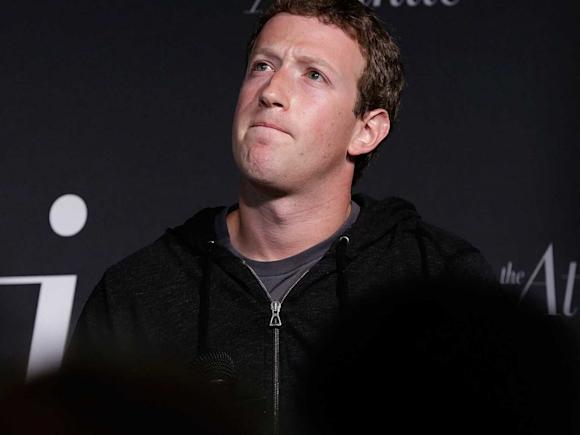Thomas Lifson
I admit to a heaping helping of schadenfreude over a report in the New York Times titled, Skepticism, Confusion, Frustration: Inside Mark Zuckerberg’s Metaverse Struggles. When Facebook joined the censorship regime, playing a critical role in fixing the 2020 presidential election, it became my enemy.
A year ago, Zuckerberg, who controls his publicly-held company through ownership of a special class of stock, announced it was changing its name to Meta and would seek its future in the virtual world. The context for this is Facebook’s declining share of the social media market, as:
TikTok is siphoning younger users away from Facebook and Instagram, Meta’s two big moneymakers, and Apple made privacy changes to its mobile operating system that have cost Meta billions of dollars in advertising revenue.
The company’s stock price has tumbled nearly 60 percent in the past year — a reflection not just of broader market turbulence, but of some investors’ skepticism that the metaverse will be highly lucrative anytime soon. In late September, the company announced that it would freeze most hiring, and Mr. Zuckerberg has warned employees that layoffs may be coming.
So, the news from the pinnacle of the media establishment that the company’s transition into a virtual reality provider is not going well pleased me. I’ve also scoffed at the dopey commercials they’ve been running on Fox News and elsewhere touring fantasies of how virtual reality will change the way the world works… supposedly for the better. (How’s that working with Facebook?)
What, exactly, is the symbolism here, and why is it supposed to be attractive to us, as a megalomaniacal oligarch promises to transform our world?
According to the Times, which spoke to more than a dozen current and former employees and obtained internal documents form the company:
Mr. Zuckerberg’s zeal for the metaverse has been met with skepticism by some Meta employees. This year, he urged teams to hold meetings inside Meta’s Horizon Workrooms app, which allows users to gather in virtual conference rooms. But many employees didn’t own V.R. headsets or hadn’t set them up yet, and had to scramble to buy and register devices before managers caught on, according to one person with knowledge of the events.
In a May poll of 1,000 Meta employees conducted by Blind, an anonymous professional social network, only 58 percent said they understood the company’s metaverse strategy. Employees have also grumbled about the high turnover and frequent shuffling of employees as Mr. Zuckerberg’s priorities change. Inside Meta, two employees said, some workers now jokingly refer to key metaverse projects as M.M.H., an acronym for “make Mark happy.”
In September, Vishal Shah, the vice president in charge of Meta’s metaverse division, wrote on an internal message board that he was disappointed in how few Meta employees were using Horizon Worlds, according to a post obtained by The Times.
In his post, which was first reported by The Verge, Mr. Shah said that managers would begin tracking workers’ use of Horizon Worlds, and said that testing their own technology was essential.
That sounds like a dystopian place to work, with management intent on enforcing conformity with its planned version of reality, no matter how much its current state fails to attract their allegiance.
According to Forbes, as of 2 weeks ago, Zuckerberg had lost $76.8 billion in net worth, a figure that is higher today with further declines in Meta’s stock price. He and his wife, Dr. Priscilla Chan (a real MD, not a doctor of education like “Dr. Jill”), are not going to have to switch to generic food brands, as they are still worth scores of billions of dollars, but they are no longer in the top ten wealthiest Americans. Having lost more than half his wealth, Zuckerberg has to have at least a little voice in the back of his mind wondering how long he should stick with this plan.
My suggestion: if he wants to save his wealth, he should scale back Meta and declare Facebook a free speech platform, as Elon Musk seemingly plans to do with Twitter assuming his purchase takes place. That would make it more exciting and might even win back market share.
But what do I know? I am no billionaire.
This article was first published in American Thinker and Richardson Post.










